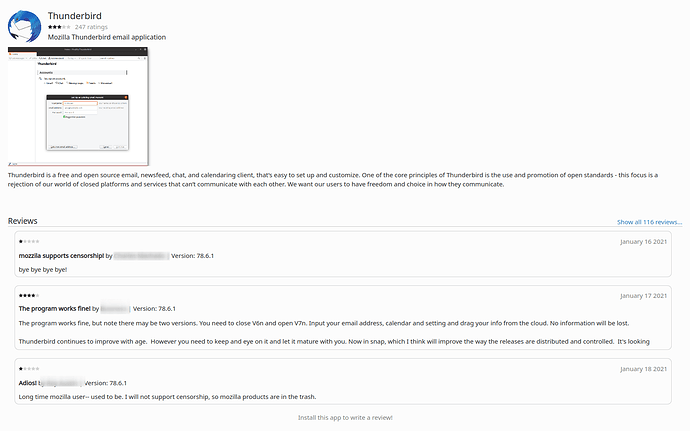Hello @PBizzle. ![]() Welcome here, i hope you enjoy your stay.
Welcome here, i hope you enjoy your stay.
About the CEO. It’s not about stifling free speech, it’s about company values, afaik.
When you enter employment, you adhere to the values and norm of the company that employs you.
If he had made the donation as a private person, with no ties to the mozilla foundation, it would go unnoticed. But being a public figure, he should have known better than to pop up on the radar.
What mozilla is asking for:
Additional precise and specific actions must also be taken:
Reveal who is paying for advertisements, how much they are paying and who is being targeted.
Like i said before, good luck with that. There are many companies that like to have influence, but also like to keep out of the spotlight.
Commit to meaningful transparency of platform algorithms so we know how and what content is being amplified, to whom, and the associated impact.
I don’t think that the majority will care about knowing what an algorithm is doing, execpt for those in the tech community. (ofcourse, those abusing said algorithms, will care very much indeed. ![]() )
)
Turn on by default the tools to amplify factual voices over disinformation.
This can be solved by more independent voices. Independent journalism, for instance, instead of private funded corporations, can be the answer here, i think…
Work with independent researchers to facilitate in-depth studies of the platforms’ impact on people and our societies, and what we can do to improve things.
This has my full support.
So i don’t see where Mozilla wants to stifle free speech.
They’re proposing tools and measures to investigate and explain exactly how and where information is being delivered.
That couldn’t be a bad thing, i think.
